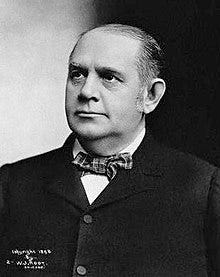In a visit to New Hampshire this past summer, I spoke with a group of anti-Trump conservatives in Concord who were speculating how someone other than Trump might win the Republican nomination. They speculated about various scenarios — Tim Scott having a really good debate night as Ron DeSantis was tanking, Nikki Haley coming up with a killer argument about Trump, etc. They acknowledged that these were very long shots, but all the scenarios involved the candidates doing something specific and extraordinary.
Is there someone, I asked, who could steer the contest in a certain direction? A prominent Republican who was not a candidate but had a lot of pull in the party and could steer voters away from Trump and toward another candidate? Something like Rep. Jim Clyburn did for Joe Biden right before the South Carolina primary in 2020?
No, they all replied, we don’t have people like that.
This struck me as an important and under-examined aspect of the modern Republican Party. A lot of our understand of political parties assumes that there are influential people within the organization who can steer its directions on nominations. These are not necessarily “bosses,” in the model of, say, Tammany leader William Tweed or Chicago Mayor Richard Daley. Rather, there are often people who can steer a decision — who have clout and fame within the party but aren’t necessarily seeking higher office for themselves. People who can spot talent in junior politicians and groom them for high office. We sometimes call these people godfathers, rabbis, or, a bit bloodlessly, “elites.” (I’m fond of Mexico’s PRI party’s concept of “El Dedazo,” the finger that points to whose turn it is to run next.)
The rest of this column is paid content. Please consider subscribing!
Keep reading with a 7-day free trial
Subscribe to Tusk to keep reading this post and get 7 days of free access to the full post archives.





